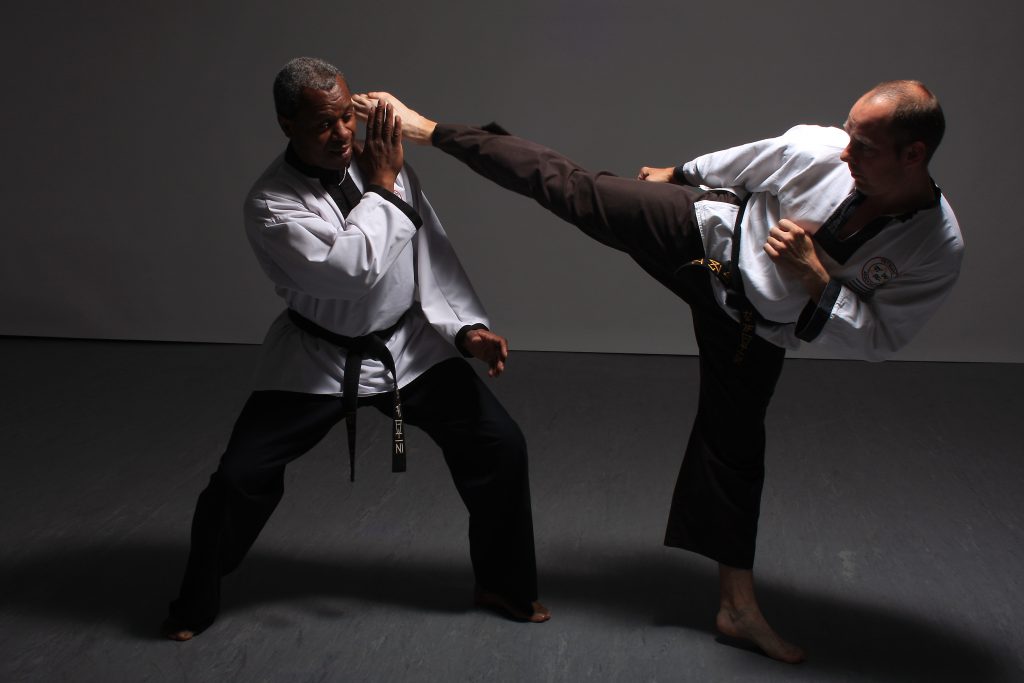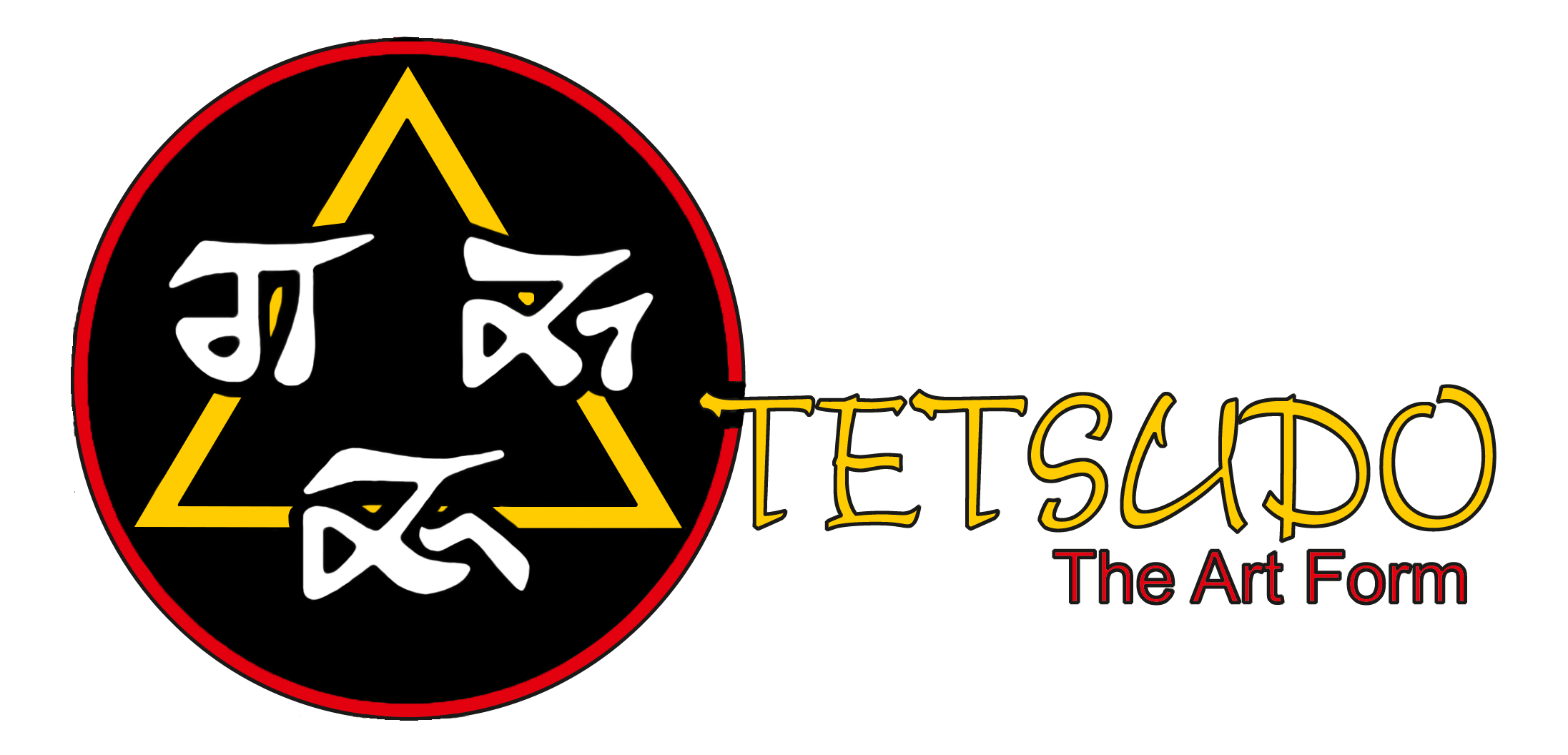
The art of Tetsudo has incorporated into its teachings one of the basic cornerstones of stimulus and response, this is taught as Freestyle. Freestyle is similar to sparring practised in other martial arts systems. Practice of Freestyle will help you develop good footwork, balance, timing, distancing and the ability to spontaneously defend, attack and adapt instinctively.
As students learn in the early stages they are introduced to one of the forms of freestyle which enables the student to utilise their basic techniques in a free form. This method is called COMPROMISED FREESTYLE. Compromised freestyle is where the stimulus and response is with a partner rather than an imaginary opponent (as in Kedh). The movements are light and passive (relaxed) in an attempt to open up a student to practice his/her basics in a free flowing and non-restrictive manner.
As students progress through their learning and practice of basic techniques then they are introduced to COMPETITIVE FREESTYLE. This is where tactics and the game of chess is played on the fighting arena where the partnerships try and outwit each other by attempting strategies to score a point against their partner. Point scoring is where an opponent gets through the person’s guard and the touch is controlled enough to allow the partner to know that their defence has been breached. This way the person scoring the point and the person having the point scored against them can further advance their learning experience. Usually in competitive freestyle, bouts in a class situation are monitored by referees but in the case of advanced practitioners they can monitor their own point scoring by acknowledging points received and obtained.
